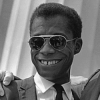James A. Baldwin

James A. Baldwin
James A. "Jim" Baldwinwas an American football player, track athlete, coach of football, basketball, and baseball, and college athletics administrator. He served as the head football coach at Rhode Island State College—now the University of Rhode Island, the University of Maine, Trinity College in Durham, North Carolina—now Duke University, Lehigh University, and Wake Forest University, compiling a career college football record of 41–32–14. Baldwin was also the head basketball coach at the same five schools, amassing a career college basketball...
NationalityAmerican
ProfessionAuthor
Date of Birth2 August 1924
CountryUnited States of America
We are very cruelly trapped between what we would like to be and what we actually are. And we cannot possibly become what we would like to be until we are willing to ask ourselves just why the lives we lead on this continent are mainly so empty, so tame, and so ugly.
The artistic image is not intended to represent the thing itself, but, rather, the reality of the force the thing contains.
We do not trust educated people and rarely, alas, produce them, for we do not trust the independence of mind which alone makes a genuine education possible.
People are continually pointing out to me the wretchedness of white people in order to console me for the wretchedness of blacks. But an itemized account of the American failure does not console me and it should not console anyone else. That hundreds of thousands of white people are living, in effect, no better than the "niggers" is not a fact to be regarded with complacency. The social and moral bankruptcy suggested by this fact is of the bitterest, most terrifying kind.
America sometimes resembles, at least from the point of view of a black man, an exceedingly monotonous minstrel show; the same dances, same music, same jokes. One has done (or been) the show so long that one can do it in one’s own sleep.
Youth must be the worst time in anybody's life. Everything's happening for the first time, which means that sorrow, then, lasts forever. Later, you can see that there was something very beautiful in it. That's because you ain't got to go through it no more.
No one knows very much about the life of another. This ignorance becomes vivid, if you love another. Love sets the imagination on fire, and, also, eventually, chars the imagination into a harder element: imagination cannot match love, cannot plunge so deep, or range so wide.
If I could make you stay, I would,’ he shouted. ‘If I had to beat you, chain you, starve you—if I could make you stay, I would.’ He turned back into the room; the wind blew his hair. He shook his finger at me, grotesquely playful. ‘One day, perhaps, you will wish I had.
I was guilty and irritated and full of love and pain. I wanted to kick him and I wanted to take him in my arms.
Well,’ I said, ‘Paris is old, is many centuries. You feel, in Paris, all the time gone by. That isn’t what you feel in New York — ’He was smiling. I stopped. ‘What do you feel in New York?’ he asked. ‘Perhaps you feel,’ I told him, ‘all the time to come. There’s such power there, everything is in such movement. You can’t help wondering—I can’t help wondering—what it will all be like— many years from now.
Sometimes you hear a person speak the truth and you know that they are speaking the truth. But you also know that they have not heard themselves, do not know what they have said: do not know that they have revealed much more than they have said. This may be why the truth remains, on the whole, so rare.
It must be remembered that in those great days I was considered to be an "integrationist" - this was never, quite, my own idea of myself - and Malcolm was considered to be a "racist in reverse." This formulation, in terms of power - and power is the arena in which racism is acted out - means absolutely nothing: it may even be described as a cowardly formulation. The powerless, by definition, can never be "racists," for they can never make the world pay for what they feel or fear except by the suicidal endeavor which makes them fanatics or revolutionaries, or both.
People who remember court madness through pain, the pain of the perpetually recurring death of their innocence; people who forget court another kind of madness, the madness of the denial of pain and the hatred of innocence; and the world is mostly divided between madmen who remember and madmen forget.
Yet I also suspected that what I was seeing was but a part of the truth and perhaps not even the most important part; beneath these faces, these clothes, accents, rudenesses, was power and sorrow, both unadmitted, unrealized, the power of inventors, the sorrow of the disconnected.